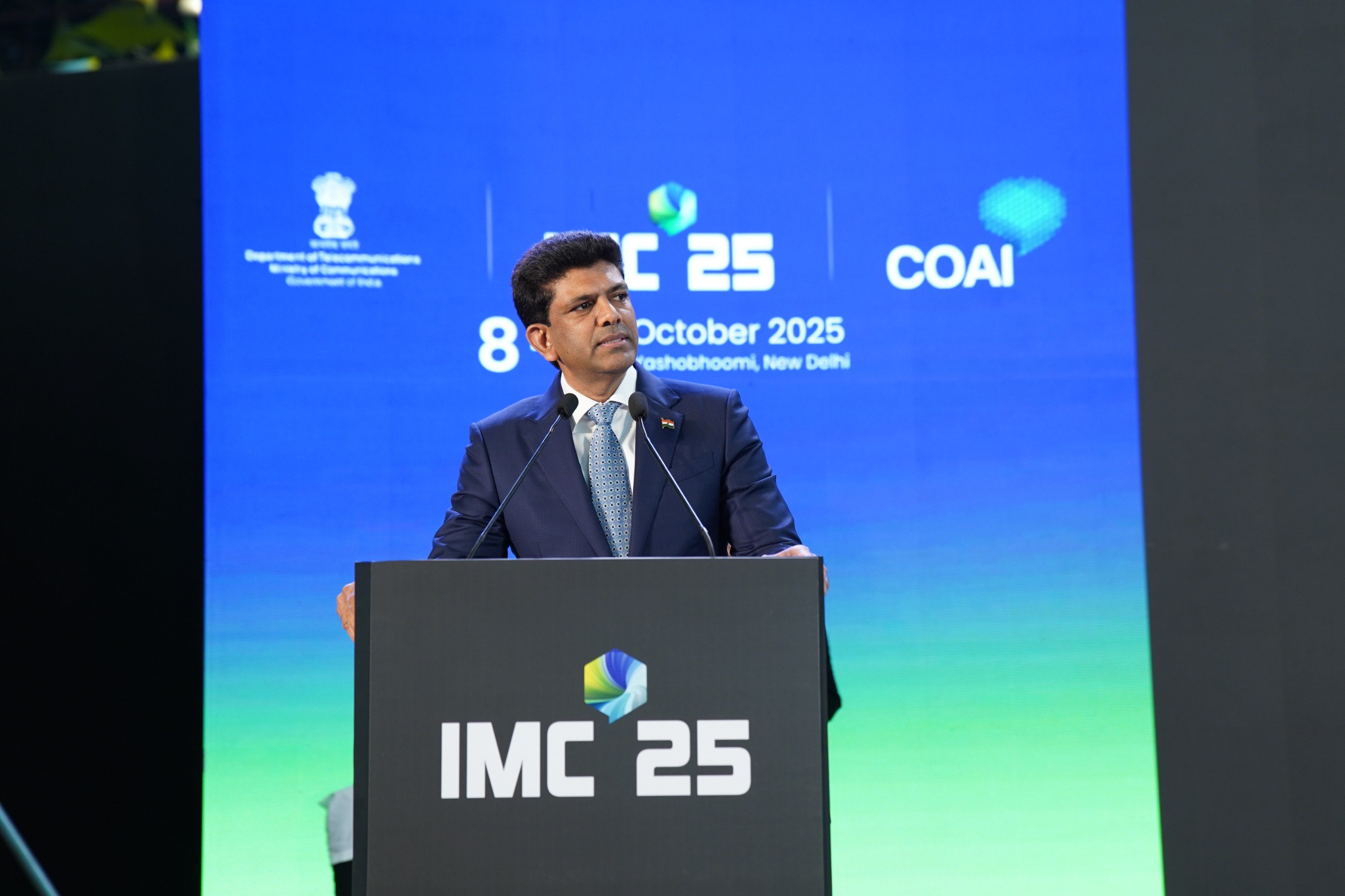Ministry of Communications
India Innovates to Empower - Using AI to Save Lives and Secure Citizens: Union Minister of State for Communications Dr. Pemmasani Chandra Sekhar
Union MoS Communications calls for Ethical and Accountable AI to Safeguard Democracy and Equality
From Bias to Deepfakes: Dr. Pemmasani Outlines Five-Point Framework for Human-Centric AI
Dr. Pemmasani Chandra Sekhar addresses International AI summit on the side lines of India Mobile Congress 2025
Posted On:
09 OCT 2025 3:36PM by PIB Delhi
“India’s innovations are not about technology for technology’s sake—they are about transforming lives,” said Dr. Pemmasani Chandra Sekhar, Minister of State for Communications and Rural Development, addressing the International AI Summit organized on the sidelines of India Mobile Congress 2025 at Yashobhoomi, New Delhi.
The Minister highlighted how digital technologies are reshaping everyday life. He noted that UPI has made seamless payments universal, ONDC has opened e-commerce opportunities for small sellers, and AI-powered alert systems saved over 500,000 lives during the 2024 Kerala floods.
Citing the Department of Telecommunications’ AI-driven Fraud Risk Indicator, which blocked 4.8 million scams and prevented losses of ₹140 crore, he said these innovations exemplify how India uses AI to empower, protect, and uplift its people.
While recognizing AI’s transformative potential, Dr. Pemmasani cautioned against its unchecked risks. “Deepfakes are undermining democracy,” he said, referring to more than 50 fake videos that circulated during the 2024 elections, spreading misinformation and eroding trust in public discourse.
Highlighting the issue of algorithmic bias, he noted that “AI hiring tools rejected 40% more women in IT jobs, and lending algorithms denied rural applicants unfairly.” Technology meant to be neutral, he observed, has instead mirrored social prejudices, deepening inequality.
The Minister also drew attention to the risks of automation and privacy violations, warning that by 2030, 15–30% of jobs in IT and manufacturing could face displacement. He pointed out that facial recognition systems have misidentified minorities with up to 80% error rates, while in healthcare, AI misdiagnosed 20% of tuberculosis cases in Uttar Pradesh hospitals—underscoring the danger of opaque, unaccountable systems.
Calling for a collective and ethical AI response, Dr. Pemmasani urged governments, industries, and citizens to act decisively. He outlined a five-point framework for responsible AI governance:
- Combat Bias: Mandate fairness audits and use diverse datasets.
- Protect Jobs: Reskill the workforce through initiatives like IndiaAI FutureSkills, preparing millions for AI-driven roles.
- Safeguard Privacy: Enforce strong data protection laws and promote federated learning models.
- Ensure Transparency: Require explainable AI in healthcare, finance, and justice sectors.
- Lead with Ethics: Build governance frameworks aligned with global standards while rooted in Indian values.
Urging organizations and individuals to remain vigilant and proactive, Dr. Pemmasani reaffirmed India’s commitment to developing AI that is trustworthy, inclusive, and human-centric.
The International AI Summit, held as part of IMC 2025, brought together global experts, policymakers, and innovators to deliberate on the future of AI, its societal impact, and frameworks for responsible deployment.

H20K.JPG)
92OS.JPG)
WMS5.JPG)
7KZN.JPG)
****
Samrat/Allen
(Release ID: 2176781)
Visitor Counter : 1088